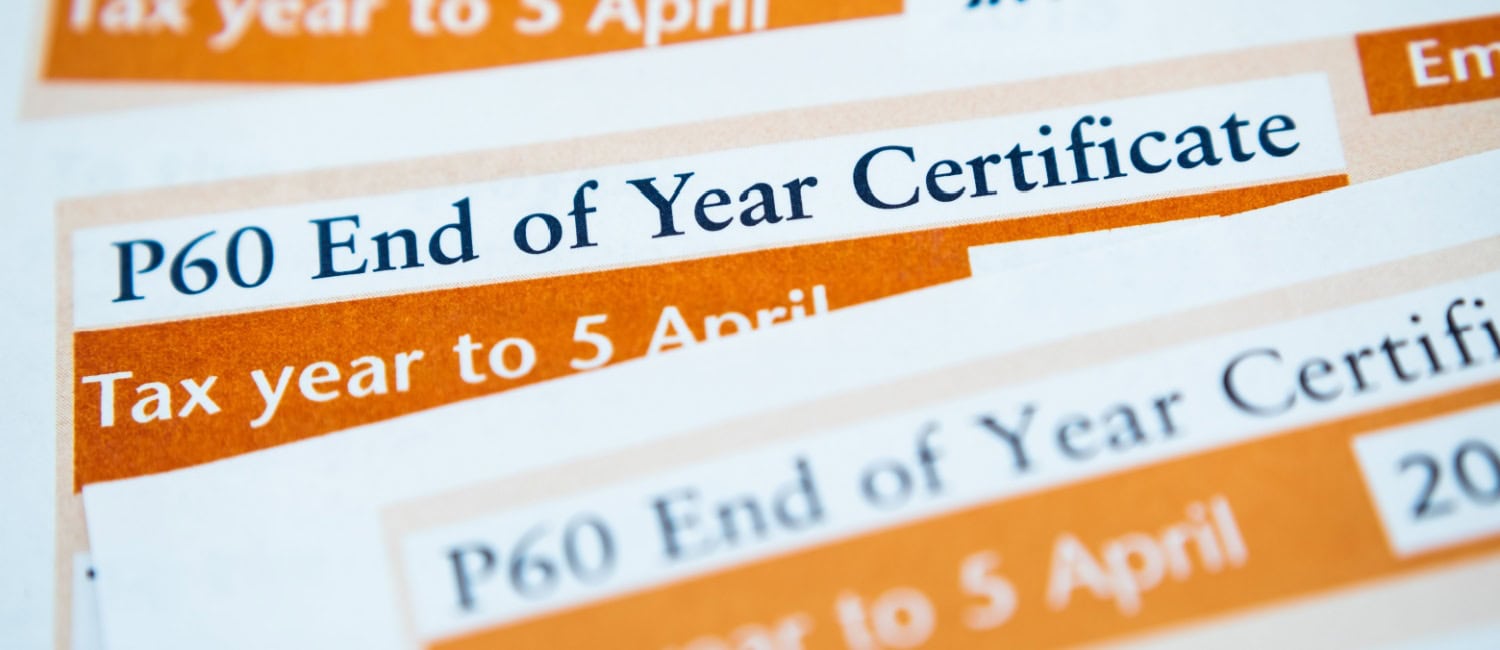The year 2024 was eventful, to say the least, for small businesses. With everything from bad weather driving customers away from the high street to the Autumn Budget announcement increasing employers’ taxes, suffice it to say they’ve had their fair share of unfortunate news.
But there are some positive takeaways from this year, too. For instance, the UK economy has remained stable since the pandemic, with a steady inflation rate throughout 2024.
It’s also been an incredibly positive year for workers’ rights, a massive focus in Labour’s Plan to Make Work Pay. Some significant implementations include a default right to flexible working and immediate employment protection for all.
To welcome 2025, we’ve collated all the key dates you need to know over the next 12 months to help you get your business off to the best start. Under each date, you’ll find an ‘Add to Calendar’ button, allowing you to add it straight to your Apple or Google calendar.
Key Takeaways
- January and April are two of the busiest months for business owners. This is when Self Assessment tax returns are due, the new tax year begins, and new tax laws come into force.
- The Spring and Autumn Budgets are scheduled for March and October 2025, which could announce essential changes that might impact small businesses.
- Quieter months like September and November are great for preparing for upcoming tasks and deadlines.
31 January 2025: Self Assessment deadline
It’s a common misconception that only self-employed individuals must file Self Assessment tax returns. However, this also applies to limited company directors and shareholders, who might receive dividend income or claim business expenses. These must all be reported to HMRC via an annual Self Assessment tax return.
January is all about Self Assessment. The first crucial date to be aware of is midnight on 31 January. This is when all online filings, tax payments for the previous year, and the first ‘payment on accounts‘ are due.

If you’re new to Self Assessment, this annual filing tells HMRC how much income you’ve received in the previous tax year. The upcoming deadline is for the 2023/24 tax year, so it’s for all the money you earned between 6 April 2023 and 5 April 2024. You are responsible for submitting your tax return and paying your bill on time.
Payments on account are when you make two advance payments during the year towards your next tax bill. HMRC estimates these payments based on the earnings you reported in your most recent tax return. This system applies to most people who file Self Assessment unless:
- Their last tax bill was less than £1,000 or
- At least 80% of their tax was deducted at source through Pay As You Earn (PAYE)
If you’re filing your first Self Assessment tax return on 31 January 2025, be mindful of payments on account to avoid any surprises. You may have to make the first payment towards your next tax bill (for the 2024/25 tax year) by this date.
Late filing penalties
If you’re filing your first Self Assessment tax return in 2025, this isn’t a deadline you want to risk missing. Failure to submit your tax return or pay the tax you owe on time will incur a penalty, which will grow depending on how late it is.
There is an automatic £100 penalty for missing the filing deadline, plus 5% of any tax due if you pay your bill more than 30 days late. Then, it’s £10 per day for up to 90 days. If you still haven’t submitted your tax return, HMRC will fine you £300 or 5% of the tax you owe (whichever is higher) and a further £300 or 5% of your tax bill if you’re up to 12 months late.
- 10 common Self Assessment tax return myths, busted
- 7 reasons to submit your tax return early
- Do I need to tell HMRC about my company formation?
Even though HMRC received a record 11.5 million tax returns on time in 2024, an estimated 1.1 million people still missed the January deadline. These penalties can be detrimental to a small business’s finances. So, in those early stages when every penny counts, it’s best to be prepared and file your Self Assessment as early as possible.
Remember that help is available if you have trouble paying your tax bill. Check if you’re eligible for HMRC’s Time to Pay Scheme, allowing you to create a suitable repayment plan.
1 February 2025: Changes to alcohol duty rates
If your small business involves supplying alcoholic products, you’re likely already aware that the alcohol tax duty is changing this year. This was one of the announcements in the 2024 Autumn Budget.
From 1 February 2025, the Alcohol Duty rate for all draught products will decrease by 1.7%. That’s a rough saving of 1p per pint. Additionally, the rate for non-draught alcohol (including wine, spirits, and bottled or canned cider and beer) will rise in line with the Retail Price Index (RPI) from this date.
To protect small businesses, the following reliefs are available:
- Small Producer Relief (previously Small Brewers Relief)—Available for small businesses producing alcoholic products below 8.5% ABV.
- Draught Relief—Relief will rise from 9.2% to 13.9% for beer and cider and from 23% to 26.9% for wine and other spirits.
Visit the government website to determine if your business qualifies for lower alcohol duty tax rates.
March 2025: New recycling legislation and Spring Budget
26 March – Spring Budget
Don’t forget to tune into the Spring Budget announcement on 26 March 2025. This is when the Chancellor will issue an update on the UK’s progress since the Autumn Budget, and some of this news could affect your business.
31 March – New commercial recycling laws
New recycling legislation is coming into force on 31 March 2025 under the Environment Act 2021. As of this date, all England-based businesses with 10 or more full-time employees will be legally obligated to separate their food waste from dry recyclables and general waste.
Business owners are responsible for ensuring their organisation complies with the new recycling laws. In addition to separating materials, they must arrange for an approved waste management provider to collect their core recyclables (excluding garden waste). This includes glass, metal, plastic, paper and card, and food waste.
Note that this rule does not apply to businesses in Scotland, Wales, or Northern Ireland. Also, micro-businesses (those with fewer than 10 full-time employees) are temporarily exempt from these changes; they have until March 2027 to prepare for the new legislation.
April 2025: Statutory pay rate and employers’ NI increases
April is a major month for business owners. Not only does it mark the start of the new tax year, but changes to various statutory pay rates and, as we all know, employers’ National Insurance (NI) rates are also coming into force.
1 April – Changes to statutory pay rates and employers’ NI
Firstly, the National Living Wage (NLW), the minimum employers must pay staff aged over 21, will increase from £11.44 per hour to £12.21 per hour. Secondly, the National Minimum Wage (NMW) for staff aged 18-20 will increase from £8.60 to £10 per hour.
Finally, the apprentice rate will increase by 18%, from £6.40 to £7.55 per hour.
5 April – Payrolling benefits registration deadline
This is the final day of the 2024/25 tax year. It’s also the deadline for registering for payrolling benefits with HMRC. Payrolling a benefit is when you deduct the taxable value of an employee’s company benefit (such as private medical cover) from their gross pay.
6 April – Parental, sick, and bereavement pay changes
The 2025/26 tax year begins. The pay rates for statutory parental, sick, and bereavement leave are changing. From this date, employees on maternity, paternity, adoption, shared parental, or bereavement leave will receive £187.18 per week, up from £184.03.
Statutory Sick Pay (SSP) for more than three days of sickness is also rising from £116.75 to £118.75 per week for eligible workers.
The new tax year also brings higher employers’ NI rates. These will increase by 1.2 percentage points, from 13.8% to 15%. The threshold at which employers start paying NI on an employee’s salary will also drop from £9,100 to £5,000.
However, in response to higher employer costs, the Employment Allowance will more than double from 6 April 2025, rising from £5,000 to £10,500.
The final news to be aware of on 6 April is the increase to Business Asset Disposal Relief and Investors’ Relief. Rates will initially rise from 10% to 14% this April, followed by another rise this time next year.
19 April – FPS and EPS deadlines for employers
This is the deadline for employers to submit their final Full Payment Summary (FPS) and Employer Payment Summary (EPS) to HMRC.
An FPS reports the payments and dedications made to every employee, including those earning less than £123 per week. You need to submit an EPS if you (the employer):
- Reclaim any statutory parental or bereavement leave
- Claim the Employment Allowance
- Reclaim Construction Industry Scheme (CIS) deductions as a limited company
- Pay the apprenticeship levy
Only send an EPS if you haven’t paid any employees in the previous tax month.
May 2025: Local elections & P60s
May is one of the quieter months in business, which is always good to know after a jam-packed April.
1 May – Local elections
One thing to look out for in May is local elections, which take place on 1 May. This event applies to all county councils in England, and the outcome could impact your small business.
31 May – P60 deadline
This is the deadline for issuing P60s to all current employees (if you have them) for the 2024/25 tax year. A P60 shows the total tax the employee has paid on their earnings in a tax year. Remember that if you’re a limited company director and receive a salary, you’ll also need a P60.

July 2025: HMRC deadlines
July is another light month, except for a few HMRC deadlines.
6 July – Taxable benefits reporting
If you’ve issued any taxable benefits to your employees in the 2023/24 tax year, you must report them and the Class 1A National Insurance you owe to HMRC by 6 July.
22 July – Pay NI on taxable benefits
You have until 22 July to pay NI on the above, or 19 July if paying by cheque.
31 July – Second payment on account due
At the end of July, it’s time to make your second payment on accounts.
October 2025: Self Assessment registration and Autumn Budget
5 October – Deadline for Self Assessment registration and updating HMRC about changes to a partnership
If you’ve started a business in the 2024/25 tax year (between 6 April 2024 and 5 April 2025) and you’re not yet registered for Self Assessment, you have until 5 October to submit your application to HMRC.
It’s easier and quicker to register online. However, you can apply by post if you prefer. Just be mindful of timings, so prepare and send your application well in advance to avoid delays.
If you’ve recently started a new partnership or a new partner has joined your organisation, 5 October is also the deadline for notifying HMRC.
End of October – Autumn Budget
The date of the 2025 Autumn Budget announcement isn’t confirmed. However, it’s generally in the second half of the month. This is a crucial announcement to tune in to, as the government will announce their financial plans, which could mean tax changes, budget cuts, and other initiatives that could affect your small business.
31 October – Self Assessment paper deadline
The deadline for submitting paper Self Assessment tax returns for the 2024/25 tax year is 31 October.
June, August, September, November & December 2025
There aren’t any specific or noteworthy dates for the above months in 2025. However, that doesn’t mean there’s nothing to do.
These quieter periods are a great opportunity to prepare for future tasks and deadlines. For example, start preparing your tax return in August if you’re going to file it by post, or start getting organised in November for the online Self Assessment deadline in January 2026.
And don’t forget about routine deadlines. These dates will depend on your company’s accounting period. For example, if you’re VAT-registered, you generally need to file a VAT return and pay your bill one month and seven days after your accounting period. This may not necessarily be the case if you pay via HMRC’s Annual Accounting Scheme or make VAT payments on accounts.
Each company’s circumstances are different, so it’s essential to stay on top of routine deadlines throughout the year.
Summary
It will be another busy year for small businesses in 2025, with some of the most significant tax changes coming into force in April affecting employers. To make these tasks more manageable, take advantage of those quieter months, which are great for getting a head start.
We hope you found this article helpful in understanding the key dates in 2025 and how they could impact your business. Don’t worry; we’ll keep you posted, as always, throughout the year on relevant news and events you might need to know about. In the meantime, please leave us a comment below if you have any questions or take a look at the 1st Formations blog for more helpful tips and advice.
Please note that the information provided in this article is for general informational purposes only and does not constitute legal, tax, or professional advice. While our aim is that the content is accurate and up to date, it should not be relied upon as a substitute for tailored advice from qualified professionals. We strongly recommend that you seek independent legal and tax advice specific to your circumstances before acting on any information contained in this article. We accept no responsibility or liability for any loss or damage that may result from your reliance on the information provided in this article. Use of the information contained in this article is entirely at your own risk.














Join The Discussion
Comments (4)
I am running a micro business and want to thank the team for your wonderful content that you produce. Your newsletters, website and videos have become my one stop shop for business guidance and information. Your content is clear, knowledgeable but also very visually appealing which is incredibly useful for people like me who learn visually. Thank you so much First Formations team. You are making a big impact for business owners in the UK
Thank you for your kind comment!
We are so pleased that you enjoy the content that we produce.
It is our goal to be able to provide as much useful information to business owners and we will continue to produce as much content as possible.
Kind regards,
The 1st Formations Team.
Thanks for the article! I will keep these key dates of 2025 in mind for my own business tax services UK.
Hi David,
That sounds like a great idea!
Unfortunately, it is very common for many small businesses to forget these dates.
Kind regards,
The 1st Formations Team.